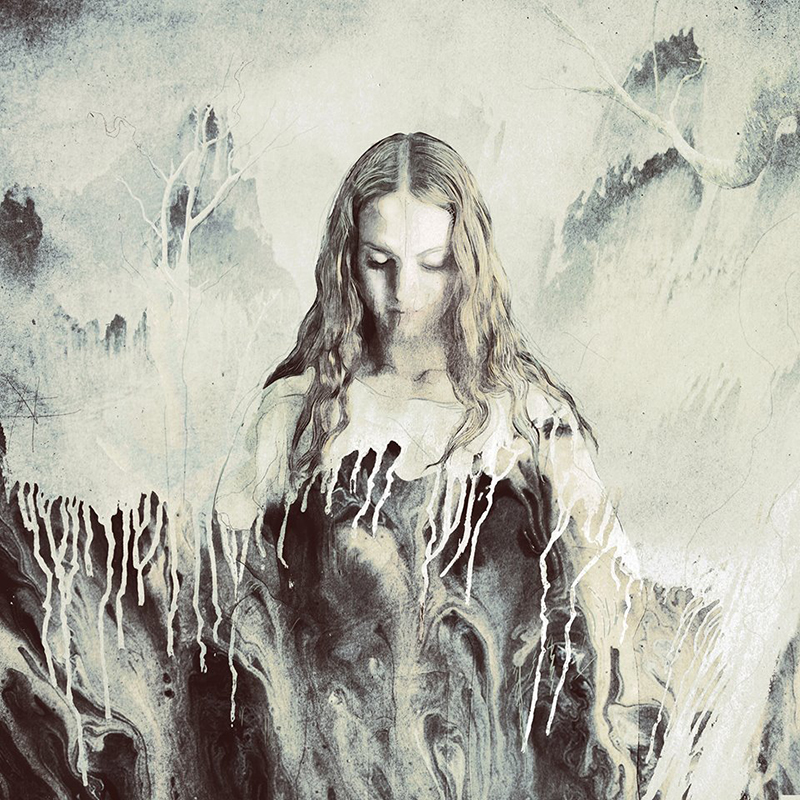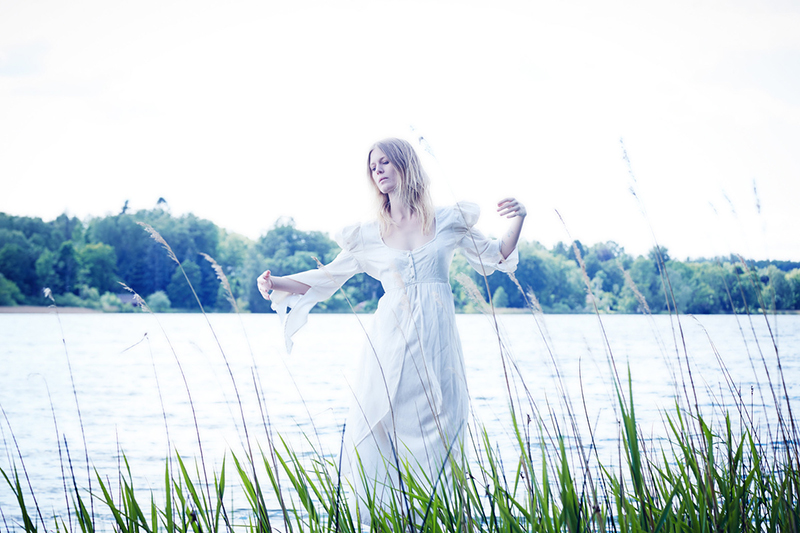In Darkness Is Strength: An Interview with Myrkur
Music Interviews
In mid-2014, the world of black metal got thunderstruck by the arrival of a mysterious EP by a one-woman band called Myrkur. Amalie Bruun’s unique style mixes the lo-fi brutality of second-wave black metal with thick folk and medieval inspiration, and she overlays the whole thing with clear, harmonious vocals and vicious, high screams. Right out of the gate, she showed a clear mastery of creating musical atmosphere: her music conjures images of endless, primitive forests and pagan rituals. As with any real change in the highly conservative subgenre of black metal, her presence is divisive. Her vision and talent have gained her many fans and deserved praise from critics, but she has also had to endure the crush of misogyny that is still alive and well in metal culture—and endure she has. This month marks the release of her first full-length album M, a gorgeous and dark record she created with the help of some of the founding members of the genre.

Myrkur’s self-titled EP is unique for many reasons—one of them being that Bruun wrote and played the entire thing herself (with the exception of drums). Instead of creating in isolation this time around, she tapped some of the giants of the genre to assist her, including Morten “Teloch” Iversen, Christopher Amott and Garm, who also produced the record. Working with some of her black metal heroes was an incredible experience for her—especially since they were equally excited to work with her. Bruun also found it easier to let other artists into her creative space than she expected, after having full control on the EP. “I was worried about having to delegate to all these men to follow my vision,” she says. “But that turned out to be good, because some of them actually helped invent the genre. They helped me get my vision instead of standing in the way of it.” So far, Myrkur is very pleased with the public’s reactions to this new endeavor. “They are everything I could hope for,” she says. “It seems the people who already liked the EP are totally understanding the direction that I’m going in, and I think the new people coming along seem to pick up on what I wanted them to pick up on, so it’s good.”
Because Bruun’s career in black metal is still so new, Myrkur has only played a single show so far, at Denmark’s renowned Roskilde Festival. The band was well-received onstage, and she feels that the translation of her unique sound came across successfully in a live performance. More than anything, though, she simply feels fortunate to have the chance to create and perform her music at this level. “I thought there was some beauty lost, but it was very rewarding to hear it come to life. As an artist, you don’t wake up and win the prize—you work on it and expect different things on different days. I actually can’t believe I get to play this music live, I never thought that that would be real. I think it’s exciting—live music is great because you go out and you risk something and create something.”
When Myrkur was revealed to be the project of a lone woman, there was an outpouring of predictable misogynist reaction against her work. Like many other women who excel in male-dominated fields, Bruun has even endured death threats simply for creating and showcasing music. It is a stressful environment to live in, much less to create in, and there were moments where she wondered if she should continue pursuing her black metal vision. “It was a feeling of something that I had to do,” she says. “I know that sounds strange. It was bigger than myself. I felt—well, what if the people I care about had decided that they were scared that day, or they were going to be antisocial about their music? Then I would never have gotten to hear it. And I never would have gotten out of it what I did. That’s a weak way of living that doesn’t fit my normal style of living.”
In the end, Myrkur knows no external source could dictate her worth, and the fulfillment she gets from creating her bold take on black metal also strengthens her against the backlash. “I don’t cope with that reality [that women don’t belong in metal] because it’s not my reality,” she says. “I think some people are just weirdos and psychos. They’re not part of the solution, they’re the problem. They’re angry at things because they feel like I took something from them that wasn’t theirs to begin with. You can see who I got to work with—it’s heroes of mine who were also excited to get involved in my records. When they think so highly of me the way I think so highly of them, it’s hard to care about what the people who don’t even play the music think of me. It’s the truth. So people saying this isn’t black metal—I don’t care. It’s a mix that I’ve created for myself and it’s what the world is going to hear now.”
As she anticipates the release of M, Myrkur is also working hard on her future projects. Particularly exciting is the concert on Aug. 28 which will take place in a literal tomb in the Emanuel Vigeland Museum in Oslo, Norway. Myrkur used the tomb to record vocals for her albums, and is hoping to get a professional recording of this performance for fans to enjoy. She has been offered tours of the States, but she is still working on how to translate her live sound to non-festival venues without compromising her vision. With any luck, stateside fans will be able to revel in her unique vision live soon enough.

